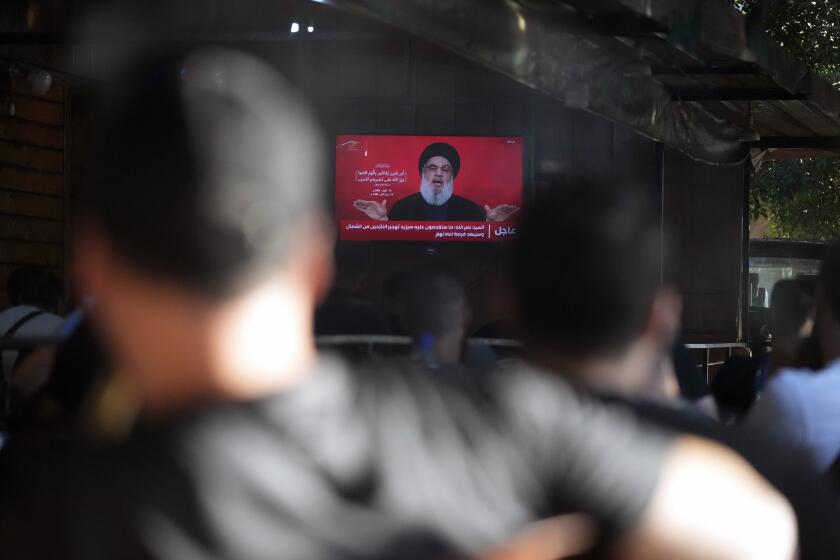Soviet Anti-Semitism Surges Again
Long a poison in Soviet life, anti-Semitism has again surged into the public eye, but far more blatantly now because of the wider latitude for self-expression allowed under President Mikhail S. Gorbachev.
The response of worried Soviet Jewry has been a massive exodus that by some estimates could lead to the departure of 750,000 people--half the country’s Jewish population--in the next five years.
“We are all apprehensive--anti-Semitism is very much on the rise,” said Arkady A. Pevzner, producer at Moscow’s Jewish Theater. “Many Jews do not want to emigrate, but we call this evacuation--we are getting out of the danger zone.”
In what for many seems a terrifying return to the persecutions suffered by their ancestors, there have been recurring threats of pogroms, most recently on May 5--the birthday of Karl Marx, who was Jewish. According to Soviet officials and Jewish groups alike, nothing has happened.
But many Jews hardly consider that a guarantee for the future.
“I have denounced Jewish emigrants before, but now I do not, because emigrants are people who want to save their lives, to survive physically,” a 31-year-old Jewish mother from Dnepropetrovsk wrote a Soviet newspaper. “My happy life is over for me. I am crying all the time.”
It is a sad irony, but the liberalization of society that Gorbachev has wrought has allowed the venting of every sort of extremist view, nationalism and xenophobia included. In the past two years, hundreds of people have been killed in brutal ethnic clashes between Armenians and Azerbaijanis, Uzbeks and Meskhetian Turks, Kazakhs and Caucasus migrants. The Kremlin’s more liberal ways have lifted the lid off long-suppressed national grudges and allowed them to be printed, broadcast and proclaimed out loud.
That is also the case with anti-Semitism, no stranger in a land where for more than a century, Jews were forced by the czars to live within a ghetto known as the “Pale of Settlement,” and where the word pogrom , meaning “like thunder,” was coined to describe the often officially sponsored massacre or persecution of a minority group.
On occasion, the government’s policy has veered toward anti-Semitism, but the recent renaissance of anti-Jewish feeling is quite different. Now, there is a “new neo-Nazi type which is not supported by the state,” Mikhail Chlenov, co-president of Va’ad, an umbrella council for Soviet Jewish organizations, said recently.
Whatever the official intention, the policy of glasnost means those feelings can be more freely expressed by ultranationalist Russian groups such as Pamyat, or Memory, and its allies.
For example, Pamyat leader Dmitri Vasiliev, appearing on state-run television, recently suggested that “leading Zionists” were somehow implicated in the empty store shelves and other aspects of economic chaos that prevail in the sixth year of Gorbachev’s reforms.
Under Gorbachev, there has been a palpable rebirth of Jewish religion and culture in the Soviet Union, from the opening of a Jewish restaurant in Moscow--Joseph’s Place--to government approval for the creation of the country’s first rabbinical school in 50 years.
Despite those positive steps, the widespread concern and fear of Soviet Jews, plus the far greater possibilities people here now have been granted for foreign travel, are fueling the Jewish exodus.
According to White House Press Secretary Marlin Fitzwater, Gorbachev agreed during his summit talks with President Bush in Washington to speak out against anti-Semitism. But whether his words can stem the outflow of Soviet Jews is an open question.
More to Read
Sign up for Essential California
The most important California stories and recommendations in your inbox every morning.
You may occasionally receive promotional content from the Los Angeles Times.










